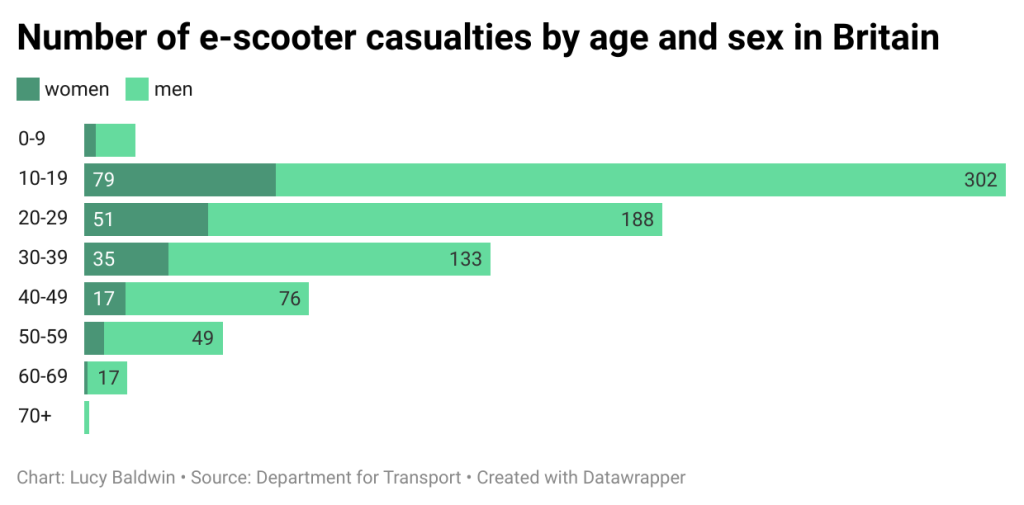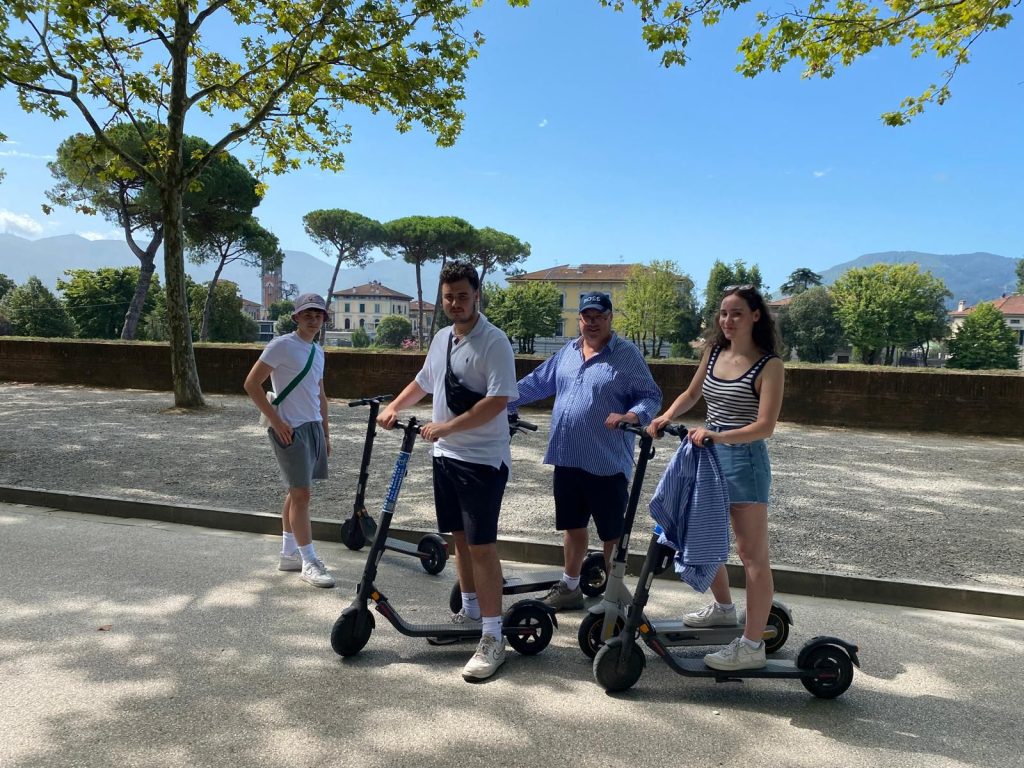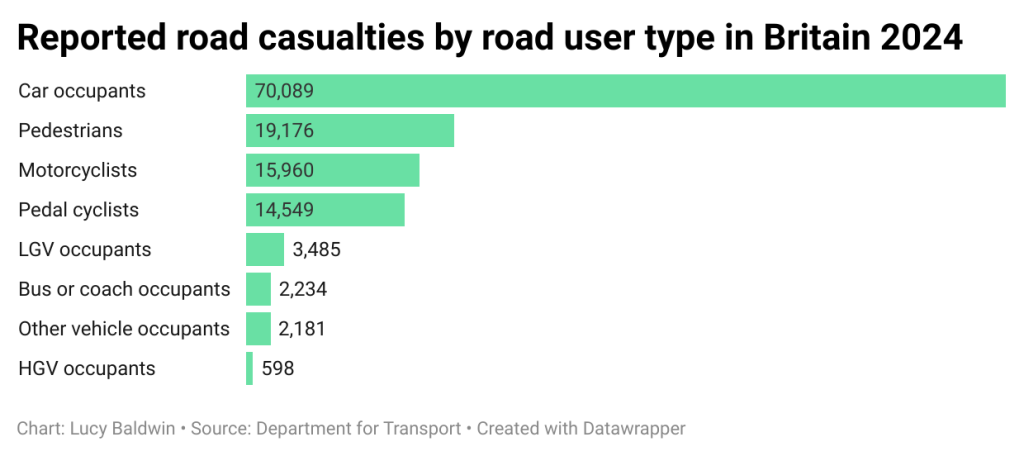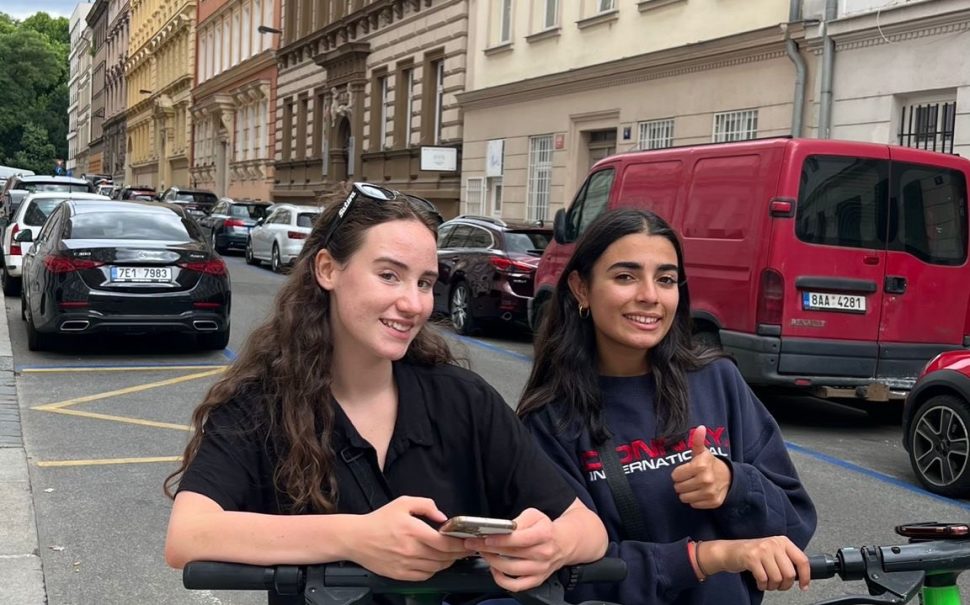One fifth of all casualties caused by e-scooter casualties in Britain 2024 were sustained in London according to government data.
There were a total of 1,387 casualties, 279 of which occurred in London according to the latest analysis of police data provided to the Department for Transport.
Five people died in e-scooter accidents in 2024, although it is unclear if any of these deaths occurred in London from the figures.
Across Britain, young people were disproportionately affected with 39% of all casualties sustained by people aged 10-19.
The report also revealed high levels of illegal activity involving e-scooters as 60% of all recorded casualties happened outside of trial zones.
In the UK the only way to ride an e-scooter legally on public land is by renting a shared e-scooter within one of the trial zones across the country.
Rental e-scooter trials began in London in 2021 with eleven London boroughs participating in trial schemes currently.
However, the Parliamentary Advisory Council for Transport Safety says there are over 1.2 million private e-scooters being used illegally in the UK.
You need at least a provisional driver’s license to be able to rent a shared e-scooter, but this is not required for buying a private e-scooter.
Nina De la Cruz is a GP in London who led the first scientific study in the UK on injuries caused by e-scooters.

The study focused on orthopaedic referrals from three London hospitals in seven months during 2020.
Researchers looked at 105 injuries found in 83 patients, 35% of whom required hospitalisation and 30% went on to have surgery.
De la Cruz said: “I didn’t expect the gravity of the injuries that we’ve seen.”
She explained they discovered unusual injuries in healthy adults, for example in the neck of the femur, which would normally only occur only in the elderly.
However, the most common injuries according to the research were wrist and arm fractures and shoulder dislocations.
De la Cruz described seeing ‘high energy, impact injuries that you wouldn’t otherwise see from other forms of manual transportation devices’.

Looking at the 2024 data, 50% of all injuries from e-scooter accidents across Britain were declared serious, reflecting De la Cruz’s concerns.
The term adjusted in the figures means the Department for Transport modified the figures to allow for better comparison across the country because police forces report injury severity in different ways.
For De la Cruz there are two main reasons for the high rate of serious injuries.
Firstly, people typically do not wear protective gear when riding e-scooters. And secondly, some people misuse e-scooters, such as by riding them with multiple people.
She is concerned that people lack awareness on how to use e-scooters safely and said in her experience ‘they are not being used in the way that they are intended’.

She said: “There needs to be a stronger political initiative to either completely ban these scooters or to make sure that the awareness of the public is good enough.”
De la Cruz believes that the real number of e-scooter could be much higher due to a lack of data.
For example, her own study was only able to cover people with specific injuries: those who suffered fractures in e-scooter accidents and were referred for orthopaedic treatment.
The data also reveals that young people made up the majority of e-scooter casualties across Britain as whole in 2024, with two-thirds sustained by people aged 10-29.
Teenage boys and young men made up the majority of those accidents, they were nearly four times more likely to experience an e-scooter casualty than girls and women in the age 10-19 category.

Bonnie Evans, 20, was a regular e-scooter user until she was involved in an e-scooter accident while on holiday in Budapest last summer.
She and her friends were renting shared e-scooters to get home late at night after other forms of public transport had closed for the night.
Evans, who lives in London, says she went round a corner on the e-scooter too fast and ‘it just came out from after my feet, slightly terrifying’.

Evans did not get treatment for the accident, but said she should have sought medical assistance.
She said: “I was quite bruised up – I had bruises for weeks after.”
Evans thinks that e-scooters are generally more dangerous than other shared transport like bikes ‘because they’re so easy to fall off’.
Similarly, De la Cruz said that because e-scooter users have a lower centre of gravity when riding than on a bike she believes this increases the risk of falling and more severe injury.
Evans also highlights that with rental e-scooter schemes because riders pay by the minute for use she thinks there is an ‘incentive to just speed around everywhere’.

Despite the accident, Evans is keen to highlight the benefits of shared e-scooters, particularly for young people.
Evan describes e-scooters as ‘a bit of fun’ saying ‘it’s not the norm’ and for her is more of ‘a social thing’.
On a practical level, the availability of e-scooters and the ability to skip the traffic makes them a great option for Evans.
She said: “Sometimes we’re not even planning on using it and then we just walk past one, so they’re very available and it’s quite tempting.”
It is these benefits that Richard Dilkes, CEO of Collaborative Mobility UK (CoMoUK) also wants to highlight.
He leads the UK’s national charity for shared transport, which promotes the social, economic and environmental benefits of modes from buses to rental e-scooters.

Dilkes is critical of the quality of the government’s data on e-scooter casualties due to their inability to separate accidents sustained on legal rented e-scooters from illegal private e-scooters being misused on public roads.
He said: “It’s an honourable job on the government’s side, but the data remains somewhat confused.”
The Department for Transport says the police are encouraged to distinguish between private and rental e-scooters involved in collisions.
But this is not mandatory, which means that the data could only distinguish that 60% of casualties across Britain in 2024 occurred outside of trial zones.
This means they could not consistently record, for example, how many casualties involved private e-scooters being used illegally on public roads in a trial zone area, a key limitation of the data.
Dilkes emphasised that e-scooters are an important ‘low carbon, low impact mode’ of transport whose popularity can help tackle private car use and the damaging emissions they produce.
CoMoUK report that over 60 million shared e-scooter rides have been taken since trials began.
In general, Dilkes says the e-scooters have a ‘good safety record’ and he points out the overall casualty numbers in Britain of 1,390 are low compared to over 14,500 pedal cycle casualties reported by the DfT in 2024, for example.

Notably, while data for other modes of transport can separate out vehicle users from pedestrians, this is not possible for e-scooter data, so e-scooter casualties will fall under the other vehicle occupant category in most cases.
Dilkes thinks that primary legislation on technical standards for e-scooters is needed to provide clarity on their impact.
Currently the government requires rental e-scooters in trial zones to meet minimum requirements including being a compliant design and being insured.
Future legislation could allow private e-scooter users to use this mode of transport legally by, for example, requiring mechanical maintenance checks and setting maximum speed limits.
Many EU countries are bound by the bloc’s regulations and have developed their own standards, so Dilkes sees the UK as backward.
However, according to Dilkes ‘this is where the UK being so behind is kind of an advantage’ as we have a clean slate to build on and can learn from other systems.
There is currently a private members bill going through parliament which aims to require the Secretary of State to review legislation and guidance on e-scooters and promote public awareness of the legislation.
In response to the release of this data, a Department for Transport spokesperson said: “Road safety is a top priority, and our thoughts are with those who have been involved in accidents involving e-scooters.
“We plan to update the law to better regulate e-scooters and create safe and legal ways for people to use them and crack down on anti-social use.”
Featured image credit: Scott Marston-Smith





